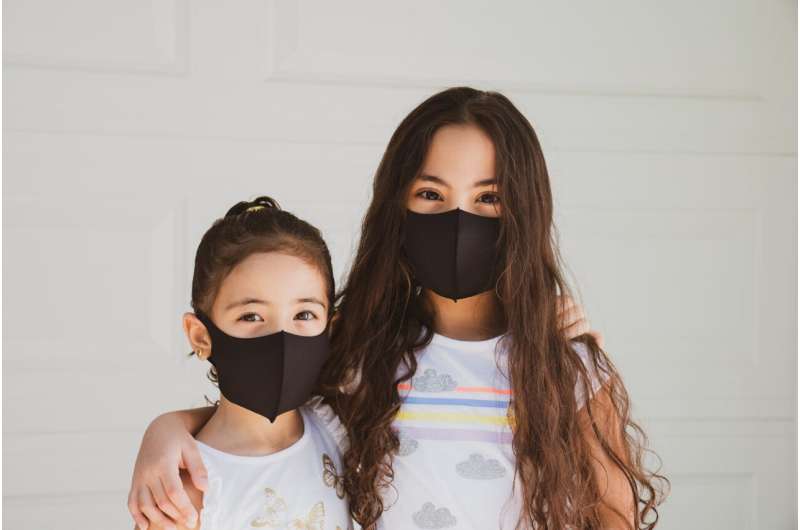Good parent bond = good COVID behavior

Containing the COVID-19 pandemic depends on the degree to which people exhibit prosocial behavior— behavior that benefits others. We wear masks to protect ourselves, but also our neighbors. We get vaccines to stop the spread of the coronavirus, to edge society closer to herd immunity.
A new study from UC Riverside finds that the degree to which adolescents exhibit prosocial behaviors generally, and COVID-19 health protective behaviors in particular, depends on the security they feel in relationships with their primary caregivers.
The study from the lab of UC Riverside psychology Professor Tuppett Yates involved 202 adolescents, about half of them female and about half Latino. The researchers found that pre-pandemic security in the parent-child relationship helped adolescents manage the stress of the pandemic so that they experienced fewer mental health symptoms. In turn, adolescents with better mental health were more likely to engage in COVID-19 prosocial and health protective behaviors, such as social distancing.
"Numerous articles in the popular press have documented increased community spread of COVID-19 due to adolescents who are socializing and partying and the ongoing difficulties activating adolescents' health protective orientation toward others during this crisis," the study authors wrote. "Adolescence marks a period of heightened egocentrism, perceived invincibility, and risk-taking behavior."
Previous research has affirmed that sensitive and responsive caregiving contributes to children's sense of trust and safety in the parent-child relationship. In turn, attachment security informs children's sense of self-worth and control over their environment. That gives them confidence to manage difficult situations, such as the COVID-19 pandemic, and help others in times of duress.
"Secure attachment relationships communicate to children and adolescents that they are worthy of care," the authors wrote. "Among adolescents, attachment security is associated with positive eating, dental, exercise, and hygiene behaviors, as well as with lower levels of health risk behaviors, such as substance use and unprotected sex."
The UCR study is the first to consider attachment security among adolescents as it relates to prosocial behavior during COVID-19. Three years before the pandemic, at age 12, the children were assessed in a laboratory setting along with their parents—92.5% of them biological mothers. At 14, the children and parents completed phone interviews for the study. One year later, in spring 2020, at the height of the initial U.S. COVID-19 lockdown the children, now around 15 years old, and parents completed online surveys to assess their responses to COVID-19.
"Of particular relevance to the current health crisis, these results also demonstrated that attachment security may have supported adolescents' mental health and adherence to COVID-19 prosocial health protective behavior guidelines, which is of paramount importance to containing this pandemic," the authors wrote.
The authors suggested parent-adolescent relationship dynamics may hold a key to promoting adolescents' mental health, as well as their protective and prosocial health behaviors.
"As with many social movements across history, from civil rights to environmental justice, adolescents have the potential to be powerful agents of social change in response to the COVID-19 pandemic," the authors concluded. "By supporting our adolescents, we may engage our strongest allies, not only in the ongoing fight to contain the COVID-19 pandemic, but also in future efforts to negotiate threats to public health and wellbeing."
More information: Brianne R. Coulombe et al, Attachment security predicts adolescents' prosocial and health protective responses to the COVID‐19 pandemic, Child Development (2021). DOI: 10.1111/cdev.13639





















